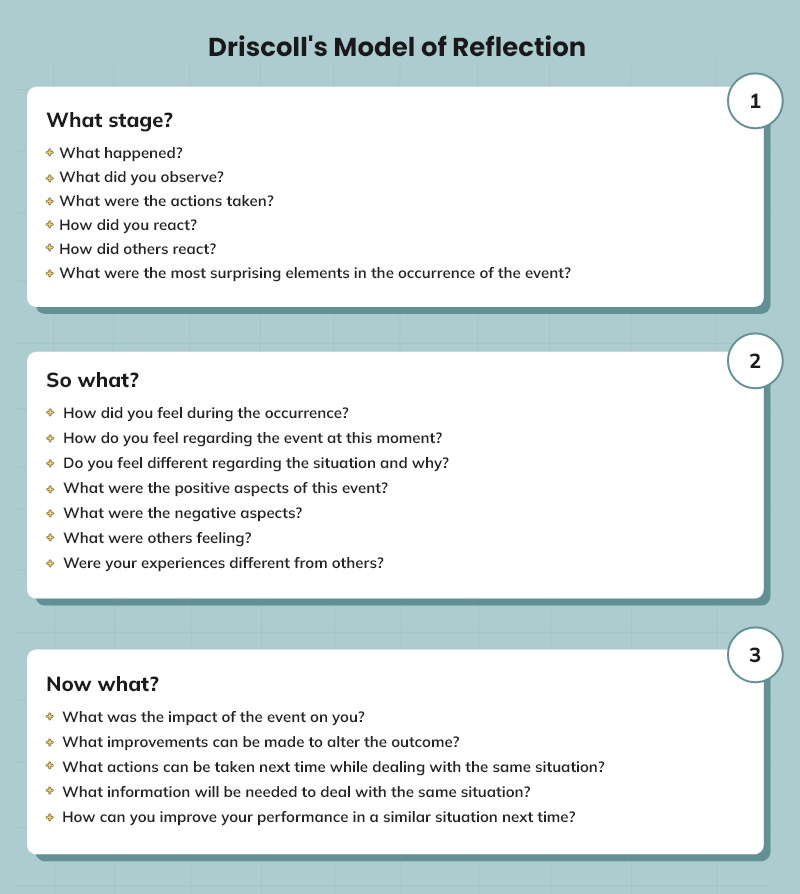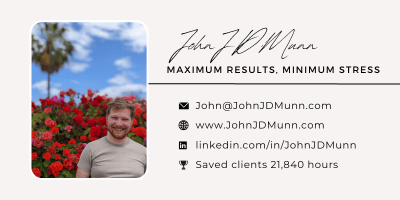🎯 Work Smart Wednesday - June 26, 2024
Context shifting to help enjoy work and family life equally, a simple model of self reflection, and a quote from Tony Robbins
Work Smart Wednesday
👋 Hey there!
Here is your weekly dose of Work Smart Wednesday
In these emails I will share with you 3 things to help you work smarter.
1. 🫂 How would the best version of myself show up in this situation?
In the course of a single day, I find that I am multiple different people. I don’t suffer from a disorder, instead I enjoy cognizant context shifting. A fancy way of saying that I am aware that I wear “different hats” in different situations.
I am guilty of often bringing business talk into places where it isn’t welcome. I love talking about business, I find it exciting and interesting. My partner isn’t so keen on every conversation revolving around business as sometimes we just need to switch off and talk about something else while on a walk. Context shifting helps me, and I think it could help you.
You probably see that similar shifts in your role are necessary throughout your day. You may need to show up during different windows as a:
Loving parent
Supportive spouse
Dedicated gym goer
Caring friend
Innovative entrepreneur
Focused leader
That's a lot to manage - which is one reason we frequently struggle to do so. The innovative entrepreneur isn’t always the right personality to be a supportive spouse.
The idea of a "Persona Residue" can be useful here. The sense that you have a little bit of residue from the prior persona that bleeds into your present persona.
It can be hard to turn off work mode and turn on family mode. It can be hard to turn off family mode and turn on gym mode. But when we get caught in between, both ends suffer.
For example: Let's say I'm headed to a family event. The best version of myself would show up as present, loving, and supportive. By identifying those traits, I can work to turn them on and show up as that ideal self.
Awareness is the first step to solving any problem. We need to identify what the current situation is, and what we believe the ideal situation is. Identifying the traits of the person I wish to be in a situation is useful to helping myself trigger those appropriate traits now and reduce the negative effects of persona residue.
Consider how your ideal persona would show up in a situation. Then, consider what actions you can take to trigger that persona in yourself.
I often help my clients to do this in the context of becoming that innovative, motivated, entrepreneur. We identify what being the perfect person in a situation looks like for them, and then identify what things we can do to trigger that state. For example, if you want to feel pumped before a sales call you may do 10 jumping jacks to trigger that mental state. It is a simple change, but it radically improves outcomes (some of my clients from gone from closing rates of 20% to 60% from making this one change). This framework isn’t confined only to business, it can help in your personal life too. So, today, I ask you to ask yourself:
How would your best version show up in this situation?
What traits or mental state is the correct one for the situation?
What can you do right now to help trigger those traits or mental state?
🆕 Last month I told you that I would be rotating the template you earn for referring someone to subscribe to Work Smart Wednesday. This month’s resource for referrals has been updated - you can now earn my template “45 tasks I have delegated”.
🎁 Receive rewards for referring your friends 🎁
📩 45 tasks I have delegated. Not sold anywhere, this template is only normally available to those that work with me 1:1. I rotate these templates monthly. This template is only available in June.
2. 🪞 A simple model of self reflection
This point is lifted entirely from a point one of my clients made in their newsletter. Thank you, Jen. Your newsletter is an excellent read.
(Jen is a dissertation coach that specialises in PhD dissertation support for BIPOC women in the USA and UK. You can find her website here, and her excellent newsletter here).
“When we act, we accumulate experiential knowledge. However, to translate that knowledge into learning and, later, action, you need reflection. When we reflect, we filter out the useful from the incidental, the insight from the emotion, and the “sense from the nonsense” (thanks, Judy!). It is intentional.
For me, however, the problem with reflection is not that it’s difficult, but that there is a) not a lot of official recognition of it as real work, and b) way too much advice and guidance on how to do it. Even when I know that reflection would be a good idea, I don’t do it because a) I don’t know where to start, and b) feel like there are more important things for me to do than work out where to start.
This week, I stumbled across something that helps with at least part of that problem. It’s a really nice, easy-to-remember formula for reflecting. It works just as well when you are sitting on the couch at 10pm trying to work out why you got so frustrated with your kid as it does for writing up a dissertation discussion chapter.
It consists of these three simple questions:
1. What happened?
2. So what?
3. What now?
It’s a highly simplified version of Driscoll’s 7-stage model for reflective writing. If you’re into that kind of thing, go check it out. If you’re not, just know that these three questions are a great starting place for any reflection.”
3. 💡 Quote I'm pondering
"You get the life you tolerate” - Tony Robbins
Is there something in your life that you’re unhappy with? Work is stressful, customers are difficult, life is busy? Well, what are you going to do about it?
This ties in well with another quote I like, “You do not rise to the level of your goals, you fall to the level of your systems” by James Clear.
We all get dealt different hands, and some have it harder than others. But I do believe that ultimately we have a responsibility to do what we can to improve.
People often complain about a thing, but do absolutely nothing to try and change that thing. We are all guilty of that sometimes. This quote encapsulates that - we all get the life we tolerate.
If we want something to change, then it is our responsibility to do what we can to effect change. Not everything is within our locus of control, but we can always have a degree of control over our reaction - and action - related to the change we wish to see.
Are you going to tolerate your current situation or do something about it?
👋 Want to work together?
When you’re ready, here are 2 ways I can help you:
🔍 Clarity Call - We will discuss your situation and create a step-by-step action plan together so you know exactly what you need to do next for maximum impact
🧩 Are we a good fit together? - See whether you and I are a good fit together by answering this short quiz. You will immediately see whether or not we are a good fit, and receive a personalised answer for what the next best step will be for you based on your answers.
P.s. Yes, I missed a week last week. A silly scheduling error that I missed as I was ill and moving house at the time. Life happens. All is well.
That's it! I can't wait to hear what you think. What did you find most useful? What do you want more or less of? Reply to this email now and let me know
Also, if you have anything interesting to share, I want to know about it😊
Have a great week,
John
P.S. Did someone forward this to you? Subscribe here
P.P.S. Thank you for trusting me with your time. If these emails ever turn into a burden, I encourage you to unsubscribe. I strive to provide real value and I am here to help you to make the most of your time
Enjoyed this issue of Work Smart Wednesday?
Refer a friend to sign up and earn valuable rewards







